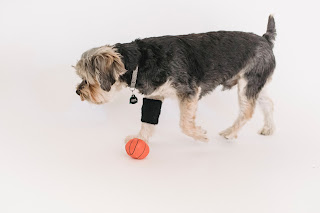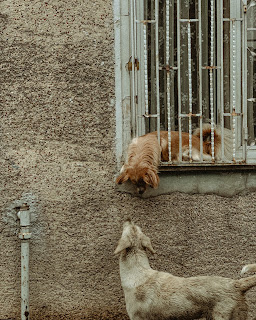How to take care of a puppy - The 10-Step Puppy Care Guide
Do you intend to get a new puppy? Congratulations! While bringing home a new puppy is joyful, there is a lot of labour involved. We will list the top 10 things you should do to take good care of your new pet in this article. These pointers will assist you in starting off on the right foot whether you have a Maltese puppy or another breed. So continue reading and get ready to be a fantastic puppy parent!
Practice good behaviour
It's crucial to get your new puppy trained as soon as possible. They must understand the rules at an early age and will be able to do it with ease if they put out a decent, consistent effort. Don't let your new family member off the hook because he is a little, adorable dog.
By developing manners in your puppy, you'll prepare it for a lifetime of fulfilling social interactions. Obedience training will also contribute to the development of a stronger link between you and your puppy.
Visit the vet with your puppy.
Having a new puppy is a lot of work, but it can also be a lot of pleasure. Make a checkup appointment with your veterinarian as soon as you bring your puppy home. There are two reasons why this is crucial. First off, the veterinarian can identify any issues early on and start treatment straight away if your puppy has any.
Dog-proof your house.
It's crucial to make your home safe for your puppy to explore when you first bring it home. Due to their insatiable curiosity and propensity to ingest anything, puppies should not be exposed to any dangers.
Make sure the following items are out of your puppy's reach and set aside or fence off a specific section of your home as his or her domain: electrical cords, toxic chemicals, plants, rugs, breakables, valuables, and rubbish.
Obtain the required puppy materials.
There are specific things you should do when you first obtain your puppy to make sure he or she is at ease and content in the new surroundings. First, make sure you have plenty of the essential items for caring for puppies on hand.
There are ID tags, collars and leashes, food and bowls, sleeping crates, toys, GPS trackers, and activity monitors for dogs among them. Next, make an effort to provide your puppy familiar toys and other forms of amusement to help keep him or her occupied.
Portion-control your puppy
You must anticipate your puppy's requirements and offer them a chance to relieve themselves at least every two hours because puppies need to urinate often.
Similar to how you can tell when a puppy "has to go," you can typically tell when a puppy "wants to go" because they will start to nervously scan the area, loop around, and begin sniffing in appropriate corners. You should now take your pet outside.
Schedule your puppy's meals and exercise.
Any family will find a new puppy thrilling, but it's crucial to prepare in advance of bringing your pet home. Your puppy's food is one of the most crucial factors to take into account.
A nutrient-dense dog food that is suited for developing puppies is what we advise. This will guarantee that your dog eats all the nutrients he requires and that he also likes the food. There are several options available, including premium, natural, and raw dog feeds.
Make suitable sleeping arrangements.
It's crucial to establish appropriate sleeping arrangements for your new puppy right away. This will make it possible for everyone in the home to have a restful night's sleep.
We advise designating a place, such a dog bed or kennel, for the puppy to sleep. In order to prevent the puppy from feeling lonely, the bed should be put in a location where other people are present. Additionally, it's crucial to enforce the napping regulation consistently so that the puppy understands what to expect.
Provide direction
You need to start planning how to care for your new dog now that you have brought him home. Keep an eye on him at all times; it's one of the most crucial things you can do. This will make it easier for you to keep an eye on his health, discipline him consistently, and keep him safe.
Make sure to socialise frequently.
A new puppy requires more than just a warm bed and a full stomach. Puppies require a lot of socialisation, training, and exercise to grow into well-mannered adult dogs. Your puppy needs to feel secure and at home throughout the first few weeks of his stay with you.
Play and cuddle with your puppy for extended periods of time. He'll need a lot of sleep, so make a peaceful area for him to do so. He will have a den-like room to call his own in a container, which is a nice idea. Give your puppy enough of high-quality food to help him develop into a strong, healthy adult.
Give your pup a GPS dog tracker.
One of your primary worries as a new dog owner is probably how to keep your puppy safe. Despite your best efforts to keep an eye on your puppy at all times, you never know when they can get scared or thrilled by a squirrel and flee.
Not knowing if or when your favourite furry pet will return to you might be a new dog owner's worst fear.
Labels: house training, puppy training




